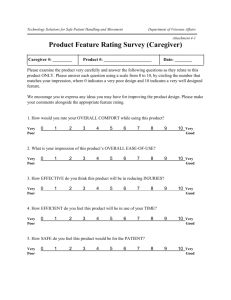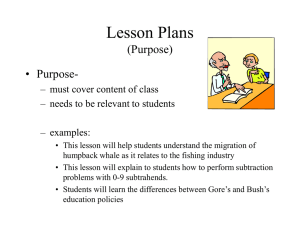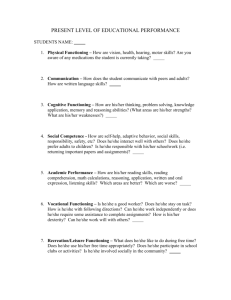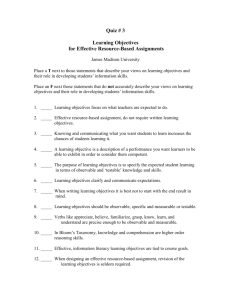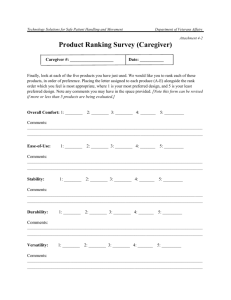AXIS V - Zero to Three
advertisement
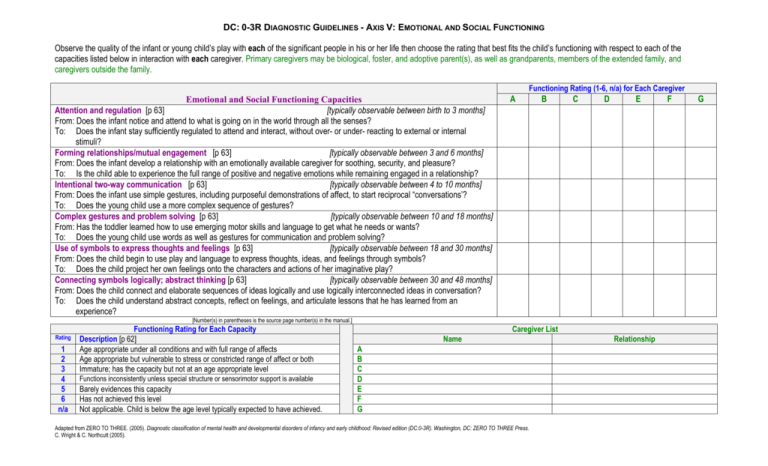
DC: 0-3R DIAGNOSTIC GUIDELINES - AXIS V: EMOTIONAL AND SOCIAL FUNCTIONING Observe the quality of the infant or young child’s play with each of the significant people in his or her life then choose the rating that best fits the child’s functioning with respect to each of the capacities listed below in interaction with each caregiver. Primary caregivers may be biological, foster, and adoptive parent(s), as well as grandparents, members of the extended family, and caregivers outside the family. Functioning Rating (1-6, n/a) for Each Caregiver Emotional and Social Functioning Capacities Attention and regulation [p 63] [typically observable between birth to 3 months] From: Does the infant notice and attend to what is going on in the world through all the senses? To: Does the infant stay sufficiently regulated to attend and interact, without over- or under- reacting to external or internal stimuli? Forming relationships/mutual engagement [p 63] [typically observable between 3 and 6 months] From: Does the infant develop a relationship with an emotionally available caregiver for soothing, security, and pleasure? To: Is the child able to experience the full range of positive and negative emotions while remaining engaged in a relationship? Intentional two-way communication [p 63] [typically observable between 4 to 10 months] From: Does the infant use simple gestures, including purposeful demonstrations of affect, to start reciprocal “conversations’? To: Does the young child use a more complex sequence of gestures? Complex gestures and problem solving [p 63] [typically observable between 10 and 18 months] From: Has the toddler learned how to use emerging motor skills and language to get what he needs or wants? To: Does the young child use words as well as gestures for communication and problem solving? Use of symbols to express thoughts and feelings [p 63] [typically observable between 18 and 30 months] From: Does the child begin to use play and language to express thoughts, ideas, and feelings through symbols? To: Does the child project her own feelings onto the characters and actions of her imaginative play? Connecting symbols logically; abstract thinking [p 63] [typically observable between 30 and 48 months] From: Does the child connect and elaborate sequences of ideas logically and use logically interconnected ideas in conversation? To: Does the child understand abstract concepts, reflect on feelings, and articulate lessons that he has learned from an experience? A B C D E [Number(s) in parentheses is the source page number(s) in the manual.] Rating 1 2 3 4 5 6 n/a Functioning Rating for Each Capacity Description [p 62] Age appropriate under all conditions and with full range of affects Age appropriate but vulnerable to stress or constricted range of affect or both Immature; has the capacity but not at an age appropriate level Functions inconsistently unless special structure or sensorimotor support is available Barely evidences this capacity Has not achieved this level Not applicable. Child is below the age level typically expected to have achieved. Caregiver List Name A B C D E F G Adapted from ZERO TO THREE. (2005). Diagnostic classification of mental health and developmental disorders of infancy and early childhood: Revised edition (DC:0-3R). Washington, DC: ZERO TO THREE Press. C. Wright & C. Northcutt (2005). Relationship F G

